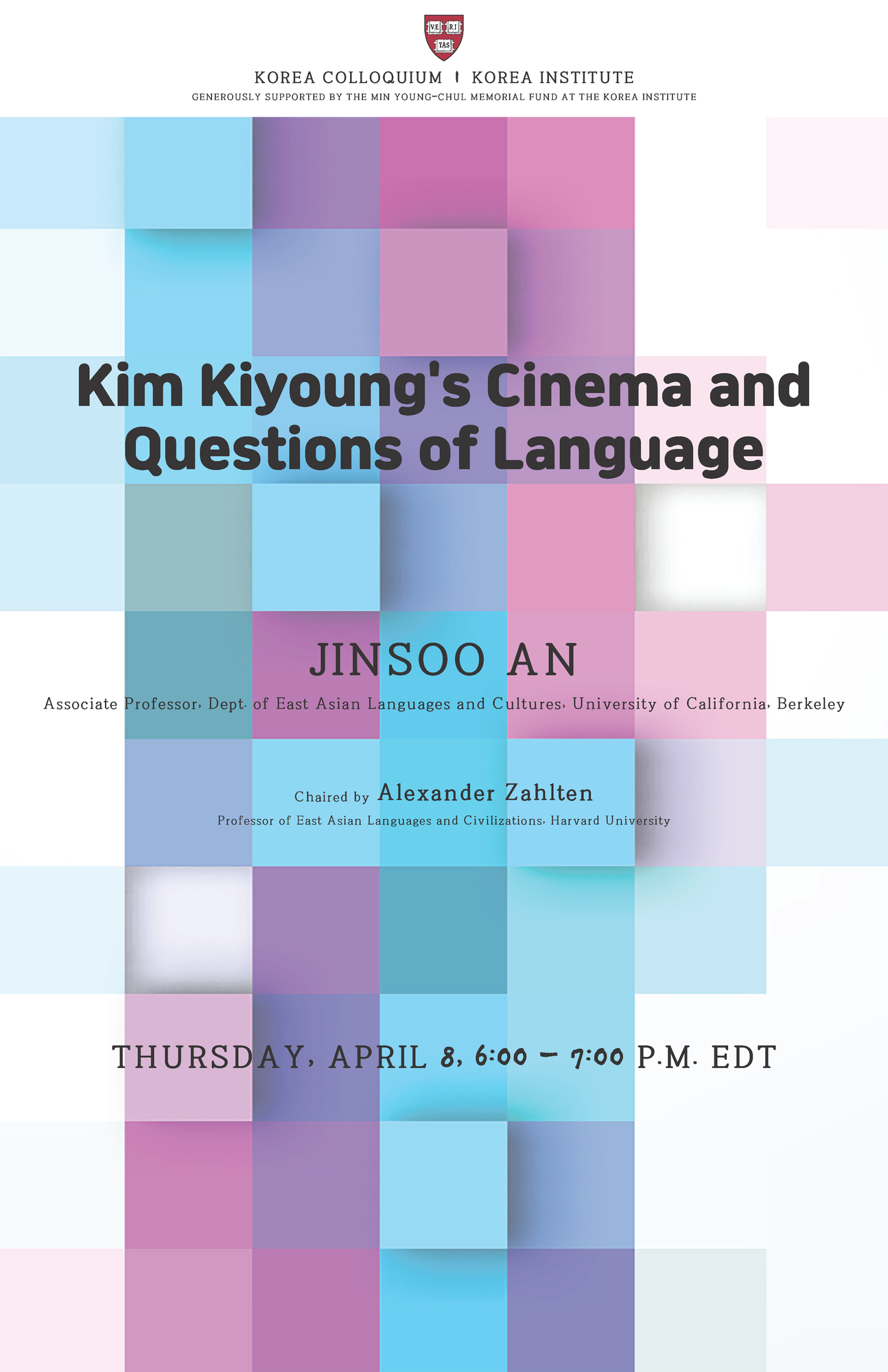Date:
Location:
Korea Colloquium
Jinsoo An
Associate Professor, Korean Studies, Dept. of East Asian Languages and Cultures, University of California, Berkeley
Jinsoo An is Associate Professor at the Department of East Asian Languages and Cultures of the University of California, Berkeley. He received his doctoral degree from the Department of Film and Television of UCLA and subsequently taught at Hongik University in Seoul, South Korea before joining the faculty at UC Berkeley in 2012. His research interests encompass Korean film history, East Asian cinema, film genre, authorship, history and memory, film historiography, and film censorship. His articles have appeared in positions: asia critique, Journal of Korean Studies, Journal of Japanese and Korean Cinema, and China Review. His 2018 book, Parameters of Disavowal: Colonial Representation in South Korean Cinema, reassesses South Korea's cinematic rendition of the colonial past as a particular type of knowledge production integral to the historical and cultural logic of the Cold War system. His current research focuses on South Korean cinema under authoritarianism and practices of film censorship during the 1970s.
Chaired by Alexander Zahlten, Professor of East Asian Languages and Civilizations, Harvard University
Abstract:
This presentation begins with a recurring feature in Kim Kiyoung’s films that critics have often pointed out but rarely analyzed: the characters’ peculiar speech patterns. Often labeled as a “plain-form” style (“munŏch’e”), the characters frequently take resort to a non-colloquial, pontificating mode of address in his films. The presentation aims to cast light on this and other linguistic features that make up Kim’s oeuvre. It identifies and analyzes several sequences that exemplify Kim’s experiment with language and explain their representational significance. Specifically, it explores the ramifications of this feature by linking it to other aesthetic principles of Kim’s films. Lastly, it puts forward an argument that Kim’s linguistic experiment holds a key for a new understanding of Kim’s aesthetic achievement.
***
To attend this event online, we ask that you please register via the following link:
https://forms.gle/q4ZN7MZY2hNkThDf9
As we approach the event date, you will receive a reminder email with the Zoom link.
***